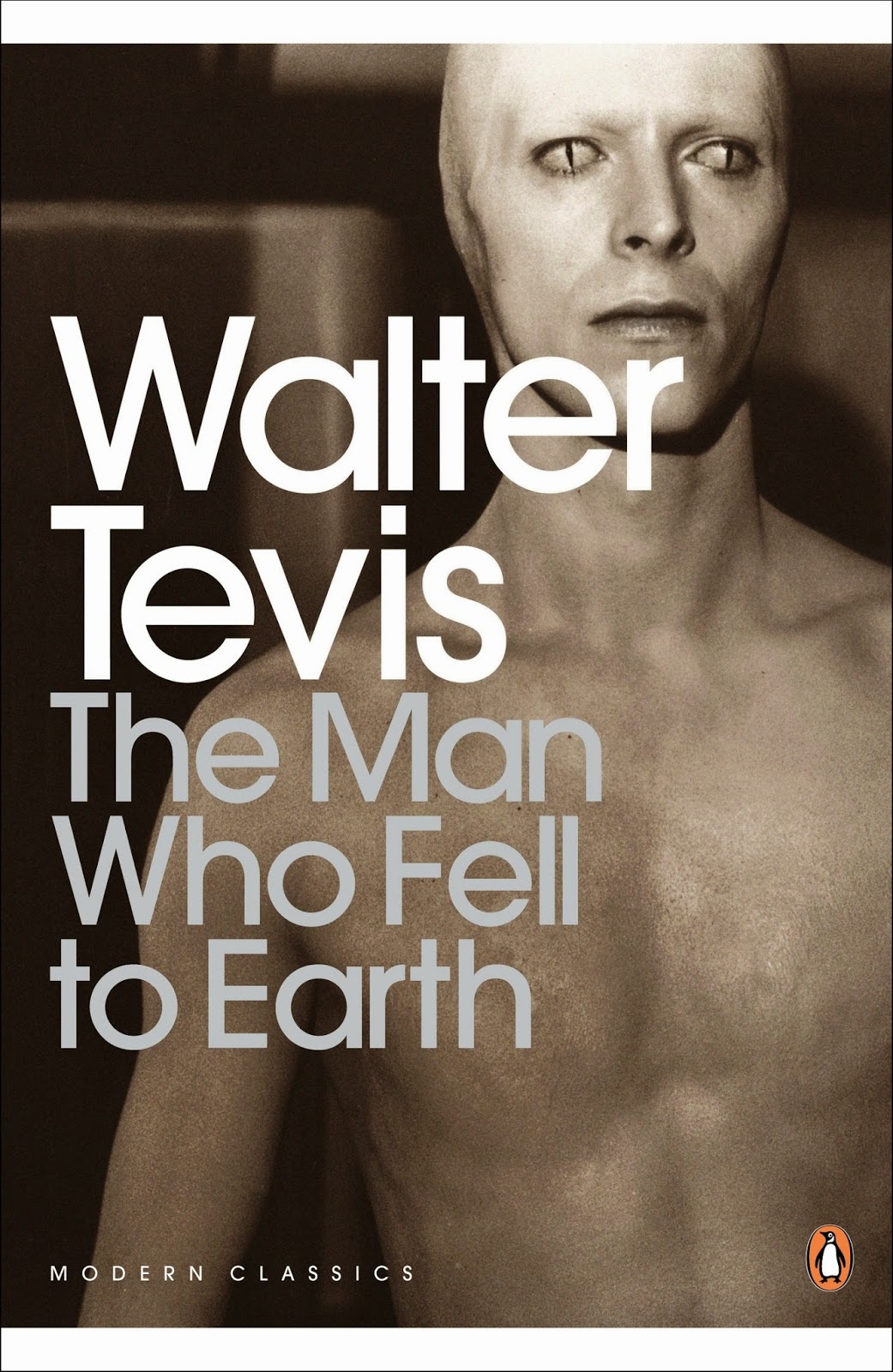 Staff Review by Chris Saliba
Staff Review by Chris SalibaPublished in 1963 and later made into a movie staring David Bowie, The Man Who Fell to Earth is a short science fiction novel that is melancholy and elegiac in tone.
John Thompson Newton has come to earth from the planet Anthea, which has been utterly ravaged by a series of nuclear wars. Anthea is running short of water and other essentials; a mere 300 Antheans is all that is left of its population. Newton has been sent to earth on a rickety craft in the hope that he can help more of his fellow Antheans migrate to earth.
First he must raise money. To do this he uses his knowledge to create cutting edge photographic processes that he patents. He's soon successful and branching out into other areas, amassing a fortune. Newton uses this money to fund an audacious space travel project. The intention is to fly his craft to Anthea and start ferrying Antheans back. He's on his way to fulfilling his mission when he is found out to be an alien. The American authorities catch up with him and bring his activities pretty much to a halt.
Along the way, we learn that Newton has a cautionary tale to tell. Too much hubris and scientific advancement is a recipe for annihilation. He warns his few friends from planet earth that they are headed for the same fate as Anthea: complete destruction by nuclear war.
The Man Who Fell to Earth is rather unique for a science-fiction novel in that its style is quite naturalistic. This sounds like an oxymoron, but Newton is described as being close physiologically to humans, the main exception being his brittle, birdlike bones. He's quite a weak, delicate alien, although with far superior intellectual capabilities. The fact of Newton's physical frailty elicits sympathy from the reader: you really do care about Newton. The story addresses classic cold war anxieties, such as a looming nuclear war and the pandora's box that technology has opened. The best thing about Tevis's writng is its simple, unaffected style. It's quite stripped down and gives you just the basics, which is presented in a compelling manner.
This is a haunting story, dripping in gloomy nuclear war anxieties and holding out little chance for peace. The only solace for society as a whole seems to be found in alcohol – rather shockingly, Newton is almost an alcoholic himself. Interestingly, Walter Tevis said the novel was basically autobiographical and allowed him to present himself through his portrait of Newton without anyone guessing it was him. Read in this way, The Man Who Fell to Earth shows the deep psychological scars that the Cold War must have left on the population as a whole.
The Man Who Fell to Earth, by Walter Tevis. Published by Penguin Classics. ISBN RRP: $24.95
To sign up for our monthly newsletter, featuring new releases, book reviews and favourite articles from around the web, click here.
No comments:
Post a Comment